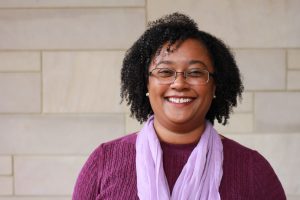
The new director of the Alabama Life Research Institute wants to enhance healthcare and life in rural areas, and that includes improving access to and quality of water.
Dr. Sharlene Newman began her tenure as the executive director of the ALRI in October 2019. A cognitive neuroscientist, Newman grew up in Abbeville, Alabama, a small community located in the southeastern corner of the state. With degrees in engineering and a career background in psychology, she believes her expertise, along with that of the ALRI researchers, can accomplish that objective.
“Our goal is to bring together faculty from different disciplines to address large problems related to life, and our focus will be life in rural America, specifically life in rural Alabama,” Newman said. “I know that well with being from a rural area of our state.”
Among the many issues Newman wants to tackle are easier access to hospitals and clinics, using technology to make sure senior citizens are eating well and taking their medicine and helping younger people avoid addictions, such as with opioids.
Finding solutions requires collaboration across The University of Alabama campus, and when it comes to water, Newman is eager to work with researchers from the Alabama Water Institute.
“As we know, water is important for life. We have to have clean water in order to live, let alone have a healthy life,” she said.
According to AWI-affiliated faculty members, approximately 25 percent of residents in rural areas do not have access to city water systems. They rely on wells for drinking water, and they are required to treat their own wastewater by way of permitted on-site septic systems.
“Understanding the issues around sewage systems is crucial because they may feed into the groundwater in some way,” Newman said. “That can impact our streams and waterways where people are fishing, pulling things out and eating them, so all of that very much ties into the health of our citizens.”
Newman said she envisions the ALRI and AWI developing joint studies and public education programs as a way to strengthen collaborative efforts. Research will not only be done on campus, but she and other faculty members will visit rural areas around Alabama to learn more about the needs of those communities. In turn, they’ll offer advice on how the institutes can help provide solutions.
“I think rural Alabamians care about making sure they have clean water, and if they’re doing something that may be impacting it, I think they’re more than willing to make changes in order to have healthier lives for themselves and their children and grandchildren,” she said. “I think they’re happy to get that information and use it to do what they need to do.”